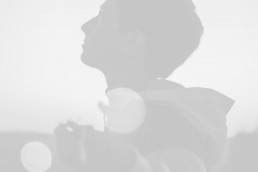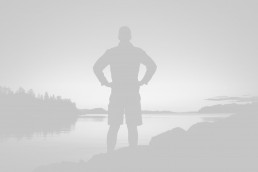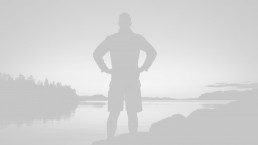Inspired by clouds
Take your time.
I’ve got a Fujifilm X100s. It runs about $1300. It’s easily the best camera I’ve ever owned. I take care of it as best as I can, but I don’t let taking care of it impact the photography. Let me elaborate on that a bit better. You’ll get better at each section of what we talked about slowly. And while you do, you’ll be amazed at how much easier it all is and how the habit forms. The best way to get better at photography is start by taking your camera everywhere. If you leave your house, your camera leaves with you. The only exception is if you’re planning for a weekend bender — then probably leave it at home. Other than that, always have it slung over your shoulder. It would probably help to get an extra battery to carry in your pocket. I’ve got three batteries. One in my camera, one in my pocket, one in the charger.
When it dies, swap them all.
For me, the most important part of improving at photography has been sharing it. Sign up for an Exposure account, or post regularly to Tumblr, or both. Tell people you’re trying to get better at photography. Talk about it. When you talk about it, other people get excited about it. They’ll come on photo walks with you. They’ll pose for portraits. They’ll buy your prints, zines, whatever.
Clouds come floating into my life, no longer to carry rain or usher storm, but to add color to my sunset sky.
— Rabindranath Tagore
Breathe the world.
I’ve got a Fujifilm X100s. It runs about $1300. It’s easily the best camera I’ve ever owned. I take care of it as best as I can, but I don’t let taking care of it impact the photography. Let me elaborate on that a bit better. You’ll get better at each section of what we talked about slowly. And while you do, you’ll be amazed at how much easier it all is and how the habit forms. The best way to get better at photography is start by taking your camera everywhere. If you leave your house, your camera leaves with you. The only exception is if you’re planning for a weekend bender — then probably leave it at home. Other than that, always have it slung over your shoulder. It would probably help to get an extra battery to carry in your pocket. I’ve got three batteries. One in my camera, one in my pocket, one in the charger. When it dies, swap them all.
For me, the most important part of improving at photography has been sharing it. Sign up for an Exposure account, or post regularly to Tumblr, or both. Tell people you’re trying to get better at photography. Talk about it. When you talk about it, other people get excited about it. They’ll come on photo walks with you. They’ll pose for portraits. They’ll buy your prints, zines, whatever.
Heavy hearts, like heavy clouds in the sky, are best relieved by the letting of a little water.
— Christopher Morley
Enjoy the morning.
The best way to get better at photography is start by taking your camera everywhere. If you leave your house, your camera leaves with you. The only exception is if you’re planning for a weekend bender — then probably leave it at home. Other than that, always have it slung over your shoulder. It would probably help to get an extra battery to carry in your pocket. I’ve got three batteries. One in my camera, one in my pocket, one in the charger. When it dies, swap them all.
For me, the most important part of improving at photography has been sharing it. Sign up for an Exposure account, or post regularly to Tumblr, or both. Tell people you’re trying to get better at photography. Talk about it. When you talk about it, other people get excited about it. They’ll come on photo walks with you. They’ll pose for portraits. They’ll buy your prints, zines, whatever. I’ve got a Fujifilm X100s. It runs about $1300.
It’s easily the best camera I’ve ever owned. I take care of it as best as I can, but I don’t let taking care of it impact the photography. Let me elaborate on that a bit better. You’ll get better at each section of what we talked about slowly. And while you do, you’ll be amazed at how much easier it all is and how the habit forms.
There are no rules of architecture for a castle in the clouds and this is real.
— Gilbert K. Chesterton
Free your mind.
The best way to get better at photography is start by taking your camera everywhere. If you leave your house, your camera leaves with you. The only exception is if you’re planning for a weekend bender — then probably leave it at home. Other than that, always have it slung over your shoulder. It would probably help to get an extra battery to carry in your pocket. I’ve got three batteries. One in my camera, one in my pocket, one in the charger. When it dies, swap them all.
I’ve got a Fujifilm X100s. It runs about $1300. It’s easily the best camera I’ve ever owned. I take care of it as best as I can, but I don’t let taking care of it impact the photography. Let me elaborate on that a bit better. You’ll get better at each section of what we talked about slowly. And while you do, you’ll be amazed at how much easier it all is and how the habit forms.
For me, the most important part of improving at photography has been sharing it. Sign up for an Exposure account, or post regularly to Tumblr, or both. Tell people you’re trying to get better at photography. Talk about it. When you talk about it, other people get excited about it. They’ll come on photo walks with you. They’ll pose for portraits. They’ll buy your prints, zines, whatever.
Photography is better shared.
Stumbled the concept

Stumbled the concept
If you’re not sure how much time you are actually spending on various tasks, use a tool like Rescue Time (their free version is excellent!) which runs in the background and tracks where your time is being spent. It can even send you weekly reports so you know exactly how much time you wasted on Facebook, or spent in your email inbox! You can assign different websites or programs/applications on a scale of very distracting to very productive, so you can see at a glance things like: which days of the week you’re most productive, which times of the day you’re most productive, and the sites on which you’re spending the most distracting time. I stumbled upon the concept of margin while reading a post by Michael Hyatt, which led me to design my ideal week.
Richard Swenson, M.D. (who wrote the book: Margin: Restoring Emotional, Physical, Financial, and Time Reserves to Overloaded Lives) describes margin like this:
Last year I wrote about why booking too far in advance can be dangerous for your business, and this concept of margin so eloquently captures what I had recognized had been my problem: I was so booked up with clients that I wasn’t leaving any margin for error, growth, planning, or reflection. I wasn’t really growing my business in a sustainable way; I was just booking one client after the next. At the time this seemed like a good thing: doesn’t growing my business mean getting more clients?
What if instead of booking up to 100% capacity (which more often than not ends up being closer to 120%), we only booked up to an 80% capacity?
What if we left more room for growth (personal or professional) and stopped being one with “busy-ness”?
I spent nearly a year turning down every new project (and even getting rid of old ones) so that I could reduce my workload, build in more margin, and create what is now Digital Strategy School. It takes time to build margin into your schedule.
What could you accomplish with 20% more time?
Write a book. Create a program. Update your contracts and proposals (which has been on your to-do list for how long..?) Spend more time with your family. Go above and beyond for a client. Learn something new. Actually follow through on the things that have been nagging at you for a long time.
When you design your ideal week, you start to see that the time you think you have is often not in alignment with how much time you actually have.
After designing my ideal week, I had a much clearer idea of how to create a framework for my week that would empower me to feel more focused by theming days of the week, and even parts of the day. SO simple, I know. Some of you have been doing this for ages and you’re already a pro, and some of you who saw my schedule said “woah, that’s so rigid, I need more flexibility!”
Structure enables flexibility.
If you’re not sure how much time you are actually spending on various tasks, use a tool like Rescue Time (their free version is excellent!) which runs in the background and tracks where your time is being spent. It can even send you weekly reports so you know exactly how much time you wasted on Facebook, or spent in your email inbox! You can assign different websites or programs/applications on a scale of very distracting to very productive, so you can see at a glance things like: which days of the week you’re most productive, which times of the day you’re most productive, and the sites on which you’re spending the most distracting time. Turns out I’m consistently “in the zone” around 3pm in the afternoon; so instead of trying to tackle highly creative work first thing in the morning (when my brain is barely functioning), I handle it in the afternoon, when I know I’m at my peak!
Creating more margin has been game-changing for my business.
What would be possible for yours?
My tech travel setup
MacBook Pro
Robert Capa, a famous photojournalist once said, “If your pictures aren’t good enough, you’re not close enough.” It’s not just about zooming in with your lens, either. It’s about getting physically closer to people and getting to know them better. It’s also about spending a little time with a stranger before taking their photo. That helps build the trust and comfort that’ll come through in your pictures. Walk up to your subject with a simple wave and a smile to help communicate that you mean no harm.
Ask permission to take a photo if they speak the same language as you. If you don’t share a language, try learning some basic phrases ahead of time, gesture at your camera and ask through expression. Of course if someone doesn’t want their picture taken, it’s imperative to respect their wishes and move on — people are always more important than photographs. National Geographic writes that “making great pictures is primarily a mental process.” What makes you want to photograph the person or place? How might you describe it to a friend, and what adjectives would you use? Are there details you can focus on that tell a story?
iPad/iPhone
Maybe it’s a dry, arid desert, captured by focusing on the patterns of cracked earth. Or a prairie that’s photographed with the horizon at the bottom of the frame, to help create a sense of the open sky and tranquility. Or maybe it’s the story of a deft artisan, fingernails covered in wet clay as she molds a pot. When you’re on the road it can be tough to eat right and make sure you get all the right nutrients. I started taking daily supplements of Multi-Vitamin, Fish Oil capsules and Vitamin D and it helps a lot. Especially the Vitamin D since I don’t get to see the sun a lot during the winter in Sweden.
Sennheiser HD-25 Headphones
It’s difficult to recreate the grandeur of a vast landscape in the confines of a picture frame. But one way to add a sense of depth to your photos is to compose them with objects in the foreground that support the scene. It can be as simple as a winding road through a national park, or some rocks to show off the local geology.
If you’re taking photos of people during normal daylight hours, a quick way to get more flattering light is to move the person out of direct sunlight. The light is much “softer” and doesn’t cast stark, unflattering shadows across their facial features. Even better, have someone stand next to an open door or window as the single source of light.
The new brand identity
I stumbled upon the concept of margin while reading a post by Michael Hyatt, which led me to design my ideal week. Richard Swenson, M.D. (who wrote the book: Margin: Restoring Emotional, Physical, Financial, and Time Reserves to Overloaded Lives) describes margin like this:
Margin is the space between our load and our limits. It is the amount allowed beyond that which is needed. It is something held in reserve for contingencies or unanticipated situations. Margin is the gap between rest and exhaustion, the space between breathing freely and suffocating.
Last year I wrote about why booking too far in advance can be dangerous for your business, and this concept of margin so eloquently captures what I had recognized had been my problem: I was so booked up with clients that I wasn’t leaving any margin for error, growth, planning, or reflection. I wasn’t really growing my business in a sustainable way; I was just booking one client after the next. At the time this seemed like a good thing: doesn’t growing my business mean getting more clients?
A long redesign.
What if instead of booking up to 100% capacity (which more often than not ends up being closer to 120%), we only booked up to an 80% capacity?
What if we left more room for growth (personal or professional) and stopped being one with “busy-ness”?
I spent nearly a year turning down every new project (and even getting rid of old ones) so that I could reduce my workload, build in more margin, and create what is now Digital Strategy School. It takes time to build margin into your schedule.Write a book. Create a program. Update your contracts and proposals (which has been on your to-do list for how long..?) Spend more time with your family. Go above and beyond for a client. Learn something new. Actually follow through on the things that have been nagging at you for a long time.
When you design your ideal week, you start to see that the time you think you have is often not in alignment with how much time you actually have.
After designing my ideal week, I had a much clearer idea of how to create a framework for my week that would empower me to feel more focused by theming days of the week, and even parts of the day. SO simple, I know. Some of you have been doing this for ages and you’re already a pro, and some of you who saw my schedule said “woah, that’s so rigid, I need more flexibility!”
Structure enables flexibility.
If you’re not sure how much time you are actually spending on various tasks, use a tool like Rescue Time (their free version is excellent!) which runs in the background and tracks where your time is being spent. It can even send you weekly reports so you know exactly how much time you wasted on Facebook, or spent in your email inbox! You can assign different websites or programs/applications on a scale of very distracting to very productive, so you can see at a glance things like: which days of the week you’re most productive, which times of the day you’re most productive, and the sites on which you’re spending the most distracting time. Turns out I’m consistently “in the zone” around 3pm in the afternoon; so instead of trying to tackle highly creative work first thing in the morning (when my brain is barely functioning), I handle it in the afternoon, when I know I’m at my peak!
Creating more margin has been game-changing for my business.
What would be possible for yours?
Working from your home?
01. Wake up at the same time every day.
Naturally, my first impression of these headphones is based off of the look of them. They have a classic over-the-ear style that is highlighted by a blue LED light that indicates the power for the noise canceling. The padding on the ear pieces seems adequate for extended usage periods.
They are wired headphones, but the 3.5mm stereo mini-plug cable is detachable. Something else I noticed right of the bat was the very nice carrying case that comes with them. It has a hard plastic exterior with a soft cloth interior that helps to protect the surface of the headphones from scratches. I never truly appreciated cases for headphones until I started carrying them from place-to-place. Now I can’t imagine not having a case.
It’s funny — the thing I feared would take away my “freedom” is the one thing that has allowed me to have it.
Joelle Steiniger
02. Have a routine when you wake up.
Once I gave the headphones a thorough once-over exam, I tried them on. As I mentioned, they have a classic over-the-ear style and just looking at them, the padding on the ear pieces seem adequate and the peak of the headband seemed to be a bit lacking, but you don’t really know comfort unless you try on the product. So, I slipped the headphones on and found them to be exquisitely comfortable. In order to test how voices sounded, and the overall art of sound mixing, I pulled up Netflix on my iPad Air 2 and watched a few minutes of a movie to hear all the nuances of the film. None of them were lost. In fact, I ended up hearing sounds that I hadn’t heard before. Echoes…birds chirping…wind blowing through trees…breathing of the characters…it was very impressive what the headphones ended up bringing out for me.

I’d start my day by checking email, Twitter, Facebook. Reading the “news”. I’d look at my to-do list and start working on something.
03. Plan your workout time — stick to it.
Now that I had the headphones on my head, I was finally ready to plug and play some music. I plugged the provided cable into the jack on the headphones and then the one on my iPhone 6. Then I called up Pandora. I tend to have a very eclectic music purview and have many stations set up for different moods. From John Williams to Fallout Boy, the sound quality of these headphones was remarkable. There is an amazing depth of sound and incredible highs and lows that make listening to music a truly breathtaking experience.
In order to test how voices sounded, and the overall art of sound mixing, I pulled up Netflix on my iPad Air 2 and watched a few minutes of a movie to hear all the nuances of the film. None of them were lost. In fact, I ended up hearing sounds that I hadn’t heard before. Echoes…birds chirping…wind blowing through trees…breathing of the characters…it was very impressive what the headphones ended up bringing out for me.
Distractions aside, there was no real rhyme or reason to my workflow. The not-so-fun (but necessary) stuff kept getting neglected.

04. Call it a night.
Now that I had the headphones on my head, I was finally ready to plug and play some music. I plugged the provided cable into the jack on the headphones and then the one on my iPhone 6. Then I called up Pandora. I tend to have a very eclectic music purview and have many stations set up for different moods. From John Williams to Fallout Boy, the sound quality of these headphones was remarkable. There is an amazing depth of sound and incredible highs and lows that make listening to music a truly breathtaking experience.
In order to test how voices sounded, and the overall art of sound mixing, I pulled up Netflix on my iPad Air 2 and watched a few minutes of a movie to hear all the nuances of the film. None of them were lost. In fact, I ended up hearing sounds that I hadn’t heard before. Echoes…birds chirping…wind blowing through trees…breathing of the characters…it was very impressive what the headphones ended up bringing out for me.

Trust in your intuitions
Once I gave the headphones a thorough once-over exam, I tried them on. As I mentioned, they have a classic over-the-ear style and just looking at them, the padding on the ear pieces seem adequate and the peak of the headband seemed to be a bit lacking, but you don’t really know comfort unless you try on the product. So, I slipped the headphones on and found them to be exquisitely comfortable. Once I gave the headphones a thorough once-over exam, I tried them on. As I mentioned, they have a classic over-the-ear style and just looking at them, the padding on the ear pieces seem adequate and the peak of the headband seemed to be a bit lacking, but you don’t really know comfort unless you try on the product. So, I slipped the headphones on and found them to be exquisitely comfortable.
If no one hates you, no one is paying attention. If attention is what you want for vanity, confidence, or, hell — to make a decent living — then know that it’s not instantaneous. Every single person that you’re currently paying attention to, at some point in their lives, was in your exact position.
You need to be
true to yourself
Just like every other human on the planet, I have epically awesome days and days when life just turne against me. And while I can’t stand most self-help (see: tired quotes over stock photography on Instagram), sometimes I need a little pick-me-up. And most of the time, in order to get out of a slump (because my brain leans more into math/science than anything else), I need to drop a logic bomb on my ass.
Yes, this is a long article. But here’s the thing — if you’re reading this in your inbox and are already like, “fuck this!” delete it. No hard feelings. If you’re reading this in a browser on a website, and you see how tiny the scroll-bar is because of how far you still have to scroll to get to the bottom, close this tab and go back to 140-character tidbits of advice. Still with me? Phew. Just had to weed out all the folks from points: #1, #4 and #8. Welcome friends, onward we go.

Remember to
never give up
If no one hates you, no one is paying attention. If attention is what you want for vanity, confidence, or, hell — to make a decent living — then know that it’s not instantaneous. Every single person that you’re currently paying attention to, at some point in their lives, was in your exact position. They kept at it and worked enough so that others started listening. Also know that if no one is watching, you can experience true freedom. Dance in your underwear. Write entirely for yourself. Like there’s a going-out-of-business sale. Find yourself — not in some coming-of-age hippie way involving pasta and ashrams— but in a way that helps you draw your own line in the sand for what matters and what doesn’t. Do what you want to do, just because you want to do that thing. This will build confidence that will come in handy later.
Once I gave the headphones a thorough once-over exam, I tried them on. As I mentioned, they have a classic over-the-ear style and just looking at them, the padding on the ear pieces seem adequate and the peak of the headband seemed to be a bit lacking, but you don’t really know comfort unless you try on the product. So, I slipped the headphones on and found them to be exquisitely comfortable. Once I gave the headphones a thorough once-over exam, I tried them on. As I mentioned, they have a classic over-the-ear style and just looking at them, the padding on the ear pieces seem adequate and the peak of the headband seemed to be a bit lacking, but you don’t really know comfort unless you try on the product. So, I slipped the headphones on and found them to be exquisitely comfortable.
If no one hates you, no one is paying attention. If attention is what you want for vanity, confidence, or, hell — to make a decent living — then know that it’s not instantaneous. Every single person that you’re currently paying attention to, at some point in their lives, was in your exact position. They kept at it and worked enough so that others started listening. Also know that if no one is watching, you can experience true freedom. Dance in your underwear. Write entirely for yourself. Like there’s a going-out-of-business sale. Find yourself — not in some coming-of-age hippie way involving pasta and ashrams— but in a way that helps you draw your own line in the sand for what matters and what doesn’t. Do what you want to do, just because you want to do that thing. This will build confidence that will come in handy later.








